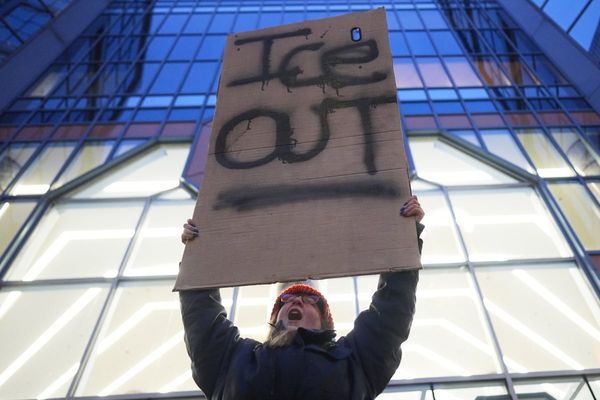
President Donald Trump signed a proclamation requiring a staggering new $100,000 fee for H-1B visas, and the rollout of this plan has been anything but smooth. The chaos has sent shockwaves through the tech and business world and prompted some serious backlash from U.S. allies, most notably India, which provides the largest number of H-1B visa holders.
Per MSNBC, the reaction from India’s commerce minister, Piyush Goyal, summed it up perfectly when he said the U.S. is “a little afraid of our talent.” The whole thing has been a mess of misinformation and hurried clarifications from the White House. After the initial announcement, the president’s press office spent the entire weekend trying to explain what the new fee actually meant.
In a series of posts on X, White House press secretary Karoline Leavitt had to clear up some major confusion. For instance, she had to clarify that the new fee “is NOT an annual fee” and is only a one-time charge for new petitions. She also had to state that people already holding an H-1B visa who are outside the U.S. would not be charged the fee to re-enter. This was after a whole bunch of companies and lawyers urged their employees to immediately return to the U.S., sparking what one H-1B visa holder called “absolute panic” and a last-minute scramble at airports.
The White House cannot get immigration right
You would think after all that, the message would be clear, but the questions just kept coming. The new $100,000 charge is roughly 50 times more than the current costs, which can range from $2,000 to $5,000. It’s supposed to apply to all new petitions, including those for universities and non-profit hospitals, which typically don’t have to go through the annual lottery system. However, a White House official told MSNBC that these organizations are not exempt.
Doug Rand, a former senior advisor for U.S. Citizenship and Immigration Services in the Biden administration, stated that a “president can’t condition entry on a gigantic fee using this authority. It’s never been done, it’s completely without precedent,” and it’s looking like this policy will face a barrage of legal challenges. It’s unclear how a fee of this size would even be processed, as the Department of Homeland Security is still trying to figure out the guidance.
— Megh Updates
BIG STATEMENT
Commerce Minister Piyush Goyal FIRES BACK on H-1B visa fee hike: “The US is a little AFRAID of our talent.”
“The world now realises how strong Indian skills are.”(@MeghUpdates) September 22, 2025
The announcement was met with a lot of anger and frustration, especially from India, which has a huge number of its citizens working in the U.S. on these visas. The Indian government has come out swinging, saying the new fee will have “humanitarian consequences” and disrupt families. A lot of the worry is centered around what this means for the future. What’s interesting is that this is how Elon Musk ended up in the U.S., but Trump seems to forget that we want talent in the United States, regardless of where it’s from.
The U.S. tech and healthcare industries rely on H-1B visa holders to fill a lot of roles, and this new rule could push that talent to other countries. As Rand pointed out, the more “chaos and uncertainty that Trump causes, the more companies are going to look to other countries to build up new offices and new laboratories.” It’s an interesting point and one that makes you wonder if this policy, which is supposed to protect U.S. jobs, will actually end up hurting the U.S. economy in the long run by sending talent elsewhere.









